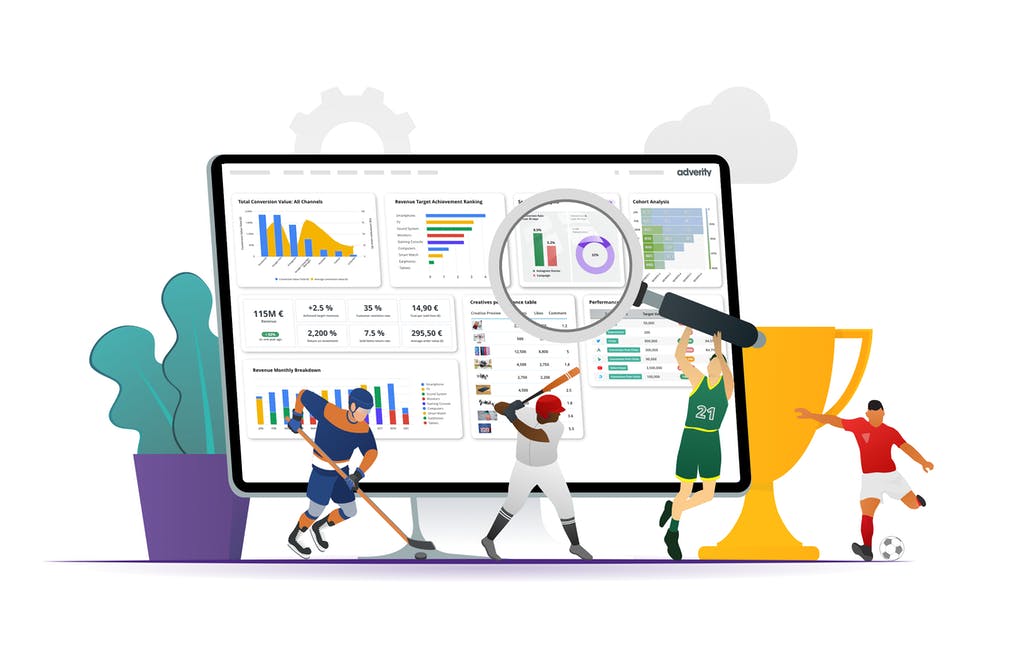What is Sports Analytics?
First, let’s start with the basics and know what is sports analytics.
In simple terms, studying various kinds of data and then drawing conclusions according to it is known as data analysis.
Talking about sports analytics, it is the study of sports analytical data like player performances, team assessment, business operations, scouting and recruitment, etc, to determine one’s strengths and weaknesses. A person who does this study is called a sports analyst.
Now that we know what sports analytics is, let’s bring you closer to your dream by understanding what exactly is the role of a sports analyst!
Role of a Sports Analyst
The primary role of a sports analyst revolves around data and numbers.
They conduct several examinations on their team and give insights to the management/coaches of how the team can improve.
They constantly analyze the game and come up with ideas about enhancing team performance and helping the sports entity to grow overall.
The analytics are usually divided into two parts, on-field and off-field analytics:
- On-field: The sports analysts help improve the team’s performance on the pitch by focusing on match tactics and strategies.
- Off-field: The role of the sports analyst is to help sports entities grow their business and increase profits.
The working period of a sports analyst is divided into two seasons: on-season and off-season.
- On-season: This means when the sport is in play and the season is running. During this period, the analyst has to help in improving the team’s performance during the matches being played. His role is more towards the coaching side in this.
- Off-season: This is when the calendar year of a sport has ended and its season is on a break. During this period, the analyst has to help in scouting and recruiting new players for the team. He also has a say on who should be transferred out of the squad. The analyst is also more focused on the off-field performances of his team during this period.
A famous example highlighting the importance of a sports analyst was shown in the movie “Moneyball”.
The Brad Pitt starrer depicted the story of how Billy Beane won America’s Major League Baseball with his team, Oakland Athletics, using data and computer-based methods while working on a low budget.

those who are interested in
sports analytics
One can also go into broadcasting and journalism while opting to work in sports analytics. Their job is to present games to viewers/readers by performing:
- pre-match analysis
- in-game analysis
- post-match analysis.
Even commentating on a game falls under this, as commentators sometimes have to deeply analyze a game. They cover a variety of aspects and all their analysis comes under the job of a sports analyst.
Steps to Start a Career as a Sports Analyst

Now, coming on to the main question, how exactly can you make a career as a sports analyst. Having just a passion for sports is not enough. You need to follow the steps given below to make it as a sports analyst:
1. Education
A degree in sports media, journalism, broadcasting, management, data science, data analysis, etc, can help you to have a base in this field.
While having a degree in any of these fields is desired, you do not need to feel disheartened if you are from a different background as there are several courses available that can help you acquire these skills.
2. Choose your Specialization
Since sports is a very vast and dynamic field, it is important to streamline your interest and then work towards it.
You need to find out which sport you want to work in like cricket, football, hockey, kabaddi, basketball, etc.
After this, you need to finalize which particular department you feel more inclined towards like journalism and media, management, training and coaching, business development and marketing, etc.
3. Stay Updated
Once you have narrowed down your specialization, you need to stay updated about all the latest events in your field. Follow top industry analysts and experts, watch interviews, and read books. You have to learn from their experiences and then carve your own way out.
4. Experience
Like in any other field, education or a degree only plays a role to a certain degree. Having practical knowledge and skills is the utmost important thing.
The sports industry is growing so exponentially that you can easily find so many opportunities on the internet.
Build your resume/portfolio and apply to these opportunities to gain hands-on practical experience. Only when you practically work in this role, will you be able to test it out truly.
You can also start something of your own like a blog, a social media page, a Youtube channel, a podcast, etc, where you can analyze games and share your insights with the world.
5. Networking
Lastly, network as much as you can. This is an important part and applies to almost every industry.
Apart from acquiring bookish knowledge about the field and gaining experience, you have to build your network by connecting with the industry partners.
Reach out to them on social media platforms, share any work you have done and ask for their feedback on it, and make meaningful connections that will help you on this journey.
So, these are some of the concrete steps which you can take further to start your career as a sports analyst.
Essential Skills Required to Become a Sports Analyst
Now, becoming a good sports analyst is not a walk in the park. Of Course, having good knowledge helps, but developing a portfolio of skills can take you places.
There are certain skills that are essential for this role. To make it as a sports analyst, you need to have:
- Interest and knowledge about the sport,
- Be good with numbers and data,
- How to find the correct data and effectively analyze it to draw results,
- Good written and verbal communication skills,
- Relationship Management skills,
- Strong interpersonal skills,
- Ability to learn things quickly,
- Able to work in a fast-paced environment, etc.
You can naturally have some skills. But you can always upskill yourself by working on them. All of these skills can be acquired through learning, experience and practical exposure.
Salary of a Sports Analyst
The pay scale of a sports analyst largely depends on which company he/she is associated with and at what level is he working.
Usually an average salary of Rs. 2.7 lakhs/pa is offered at the start. There are a lot of bonuses and incentives according to team performance and targets.
But once you get to the very top level like the IPL, you can expect this number to increase significantly. The recent IPL media rights auction has showcased how much money is actually put into this million-dollar industry.
Some top sports analysts in India are Harsha Bhogle, Ridhima Pathak, Jatin Sapru, Boria Majumdar, etc.

Is Sports Analyst a Good Career Option?

The answer to this is subjective and depends on the person.
The profession of a sports analyst is one that is highly exciting and rewarding. Working with teams and athletes is something that we may all have dreamt of, but only a few get to actually accomplish it.
This is not a conventional 9-5 job. Depending on your role and the organization that you are a part of, the work can involve a lot of traveling as the analyst needs to accompany his team for all matches and tournaments.
You need to constantly work your way up and be ready to face all kinds of situations. This is a very competitive industry and very few make it to the top. If you think you can do all this, then this will be the best career option for you.
Conclusion
So after reading it all, it’s time for you to finally stop thinking and start acting! Take the first step and step out of your comfort zone. If you want to fulfill your lifelong dream of making a career in sports, there is no better time than today to start working towards it.
Educate yourself, acquire those skills, get that practical exposure, and start your journey. It definitely won’t be an easy ride but, “nothing worth having comes easy”.
To kickstart your dream journey of being a sports analyst, consider checking Mad About Sports.





Is a on line course available?
Yes, all our courses are online.
You can find more about out through this link https://madaboutsports.in/
Okay
Nice I want to be a football anylist